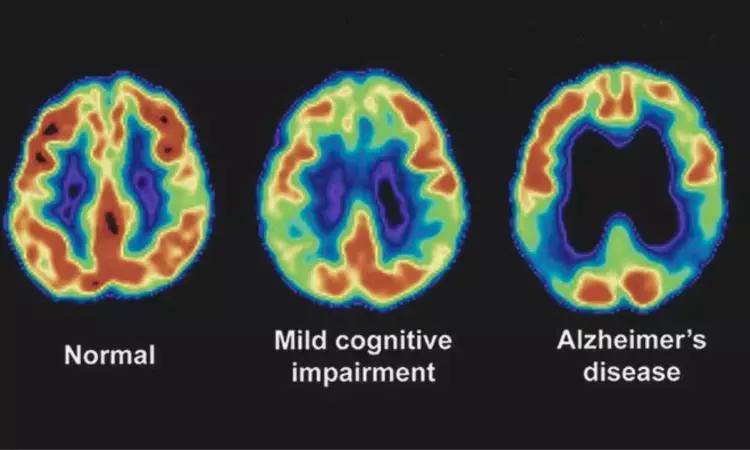- Home
- Medical news & Guidelines
- Anesthesiology
- Cardiology and CTVS
- Critical Care
- Dentistry
- Dermatology
- Diabetes and Endocrinology
- ENT
- Gastroenterology
- Medicine
- Nephrology
- Neurology
- Obstretics-Gynaecology
- Oncology
- Ophthalmology
- Orthopaedics
- Pediatrics-Neonatology
- Psychiatry
- Pulmonology
- Radiology
- Surgery
- Urology
- Laboratory Medicine
- Diet
- Nursing
- Paramedical
- Physiotherapy
- Health news
- Fact Check
- Bone Health Fact Check
- Brain Health Fact Check
- Cancer Related Fact Check
- Child Care Fact Check
- Dental and oral health fact check
- Diabetes and metabolic health fact check
- Diet and Nutrition Fact Check
- Eye and ENT Care Fact Check
- Fitness fact check
- Gut health fact check
- Heart health fact check
- Kidney health fact check
- Medical education fact check
- Men's health fact check
- Respiratory fact check
- Skin and hair care fact check
- Vaccine and Immunization fact check
- Women's health fact check
- AYUSH
- State News
- Andaman and Nicobar Islands
- Andhra Pradesh
- Arunachal Pradesh
- Assam
- Bihar
- Chandigarh
- Chattisgarh
- Dadra and Nagar Haveli
- Daman and Diu
- Delhi
- Goa
- Gujarat
- Haryana
- Himachal Pradesh
- Jammu & Kashmir
- Jharkhand
- Karnataka
- Kerala
- Ladakh
- Lakshadweep
- Madhya Pradesh
- Maharashtra
- Manipur
- Meghalaya
- Mizoram
- Nagaland
- Odisha
- Puducherry
- Punjab
- Rajasthan
- Sikkim
- Tamil Nadu
- Telangana
- Tripura
- Uttar Pradesh
- Uttrakhand
- West Bengal
- Medical Education
- Industry
Early implementation of amyloid PET may improve timely diagnostic workup of memory clinic patients

Switzerland: Findings from a randomized clinical trial published in JAMA Neurology support the early implementation of amyloid PET (positron emission tomography) in the diagnostic workup of memory clinic patients.
The researchers demonstrated that performing amyloid PET early (within one month) in the diagnostic workup allowed 40% of memory clinic patients to receive an etiological diagnosis with very high diagnostic confidence after only three months, which is 3.5 times more frequently than patients who had not undergone amyloid PET (11%).
Amyloid PET allows the direct evaluation of amyloid deposition, one of the main hallmarks of Alzheimer's disease (AD). However, this technique is currently not widely reimbursed because of the need for adequately designed studies demonstrating its clinical effect. Therefore, Daniele Altomare, University of Geneva, Geneva, Switzerland, and colleagues aimed to assess the clinical effect and cost-effectiveness of amyloid PET in memory clinic patients in the AMYPAD-DPMS study, a prospective, multicenter, randomized clinical trial.
In the trial, conducted across 8 European memory clinics, participants were allocated to three study groups based on amyloid PET's performance: early in the diagnostic workup (within one month), arm 1: late in the diagnostic workup after eight months, arm 2; or if and when the managing physician chose, arm 3.
Recruitment was done from 2018 to 2020, and data was analyzed from 2022 to 2023. Participants were patients with mild cognitive impairment (MCI), subjective cognitive decline plus (SCD+; SCD plus clinical features raising the likelihood of preclinical AD), or dementia. They were assessed at baseline and following three months.
The study's primary outcome was the difference between arm 1 and arm 2 in the proportion of people receiving an etiological diagnosis with very high confidence (i.e., ≥90% on a visual numeric scale of 50%-100%) following three months.
The authors reported the following findings:
- Eight hundred forty-four participants were screened, and 840 were enrolled (291 in arm 1, 271 in arm 2, 278 in arm 3).
- Baseline and 3-month visit data were available for 272 participants in arm 1 and 260 in arm 2 (median age: 71 and 71 years; 55% male and 52% male; 45% female and 48% female; median education: 12 and 13 years, respectively).
- After three months, 40% of participants in arm 1 had a diagnosis with very high confidence vs 11% in arm 2. This was consistent across cognitive stages (SCD+: 30% versus 6%; MCI: 42% versus 9%; dementia: 49% vs 20%).
The findings revealed that early amyloid PET allowed memory clinic patients to get an etiological diagnosis with very high confidence after only three months versus patients who had not undergone amyloid PET.
"This evidence from AMYPAD-DPMS of the amyloid PET's clinical effect in a European memory clinic population indicates that widespread implementation of this imaging technique may improve the timely diagnostic workup of patients under assessment for cognitive decline," the researchers conclude.
Reference:
Altomare D, Barkhof F, Caprioglio C, et al. Clinical Effect of Early vs Late Amyloid Positron Emission Tomography in Memory Clinic Patients: The AMYPAD-DPMS Randomized Clinical Trial. JAMA Neurol. Published online May 08, 2023. doi:10.1001/jamaneurol.2023.0997
Dr Kamal Kant Kohli-MBBS, DTCD- a chest specialist with more than 30 years of practice and a flair for writing clinical articles, Dr Kamal Kant Kohli joined Medical Dialogues as a Chief Editor of Medical News. Besides writing articles, as an editor, he proofreads and verifies all the medical content published on Medical Dialogues including those coming from journals, studies,medical conferences,guidelines etc. Email: drkohli@medicaldialogues.in. Contact no. 011-43720751


